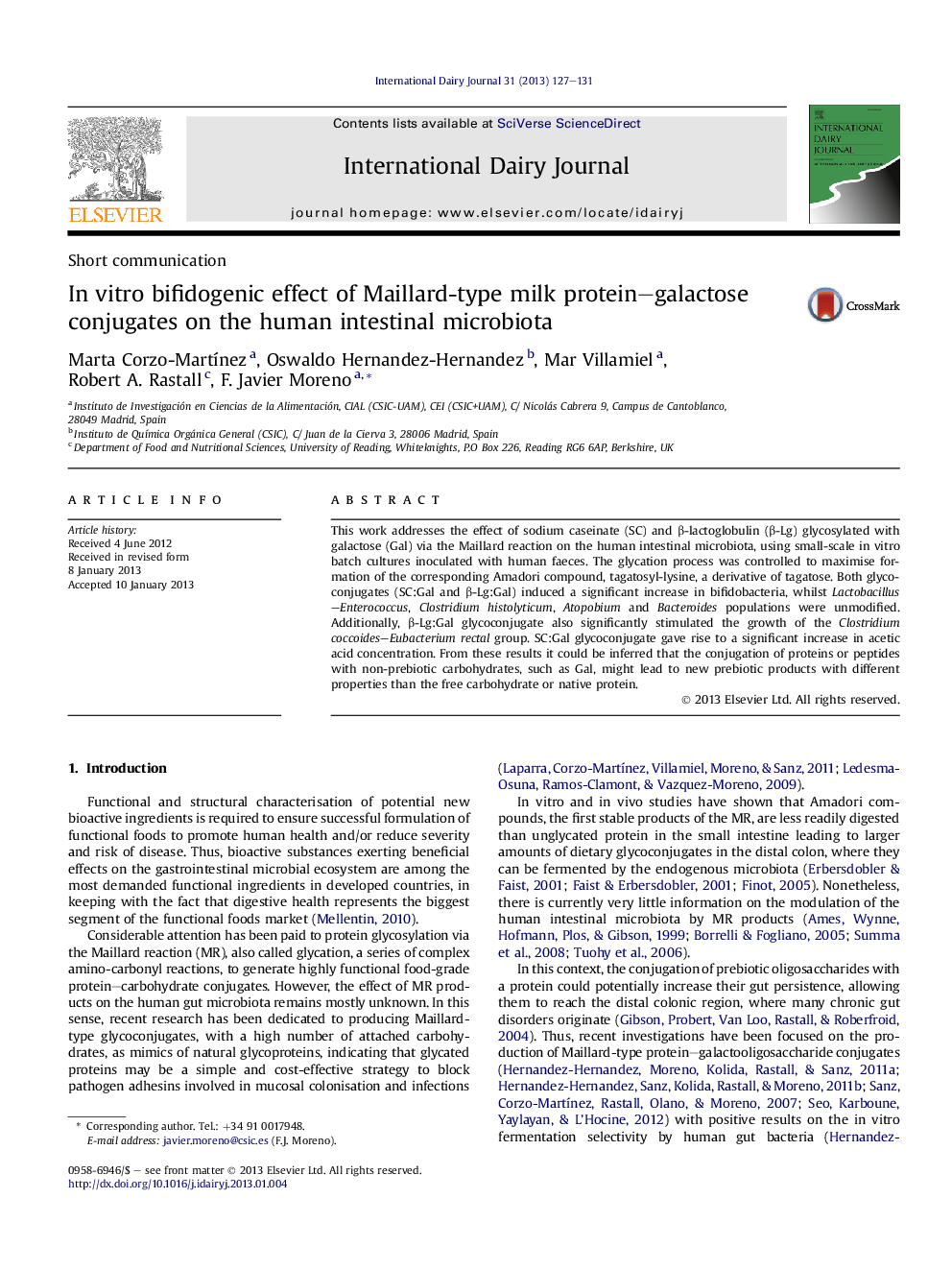| کد مقاله | کد نشریه | سال انتشار | مقاله انگلیسی | نسخه تمام متن |
|---|---|---|---|---|
| 2434516 | 1107012 | 2013 | 5 صفحه PDF | دانلود رایگان |

This work addresses the effect of sodium caseinate (SC) and β-lactoglobulin (β-Lg) glycosylated with galactose (Gal) via the Maillard reaction on the human intestinal microbiota, using small-scale in vitro batch cultures inoculated with human faeces. The glycation process was controlled to maximise formation of the corresponding Amadori compound, tagatosyl-lysine, a derivative of tagatose. Both glycoconjugates (SC:Gal and β-Lg:Gal) induced a significant increase in bifidobacteria, whilst Lactobacillus–Enterococcus, Clostridium histolyticum, Atopobium and Bacteroides populations were unmodified. Additionally, β-Lg:Gal glycoconjugate also significantly stimulated the growth of the Clostridium coccoides–Eubacterium rectal group. SC:Gal glycoconjugate gave rise to a significant increase in acetic acid concentration. From these results it could be inferred that the conjugation of proteins or peptides with non-prebiotic carbohydrates, such as Gal, might lead to new prebiotic products with different properties than the free carbohydrate or native protein.
Journal: International Dairy Journal - Volume 31, Issue 2, August 2013, Pages 127–131